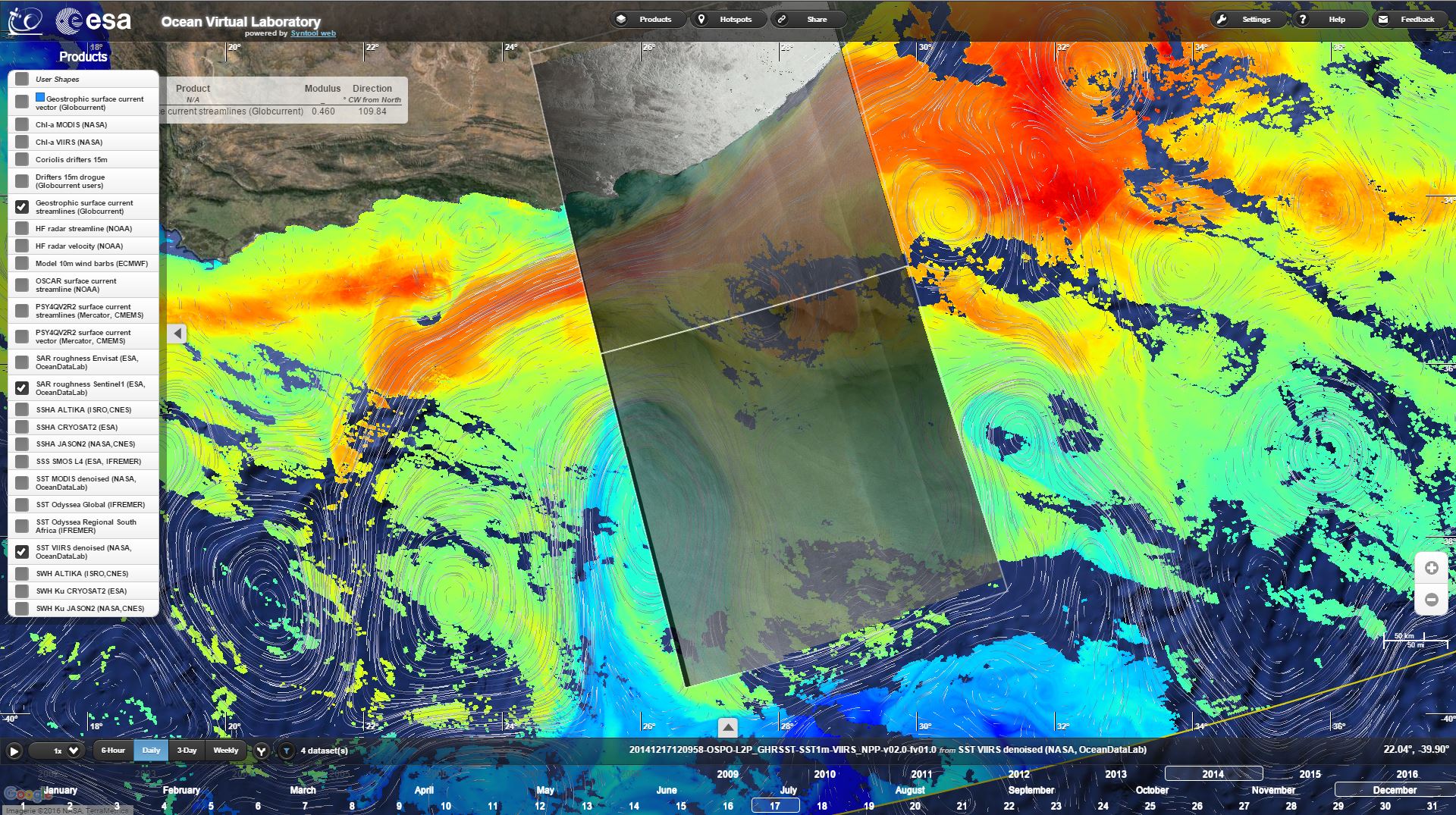25-26 October 2016 - Ocean Virtual Laboratory - 2nd training course on Ocean Remote Sensing Synergy
UPT, Timisoara, Romania
by dr.fab
Oct 25-26, 2016. Ocean Virtual Laboratory training course at UPT, Timisoara, Romania : download the flyer of the training course
Students wishing to participate can apply by clicking here or by filling this form and sending it to training-course.timisoara-2016nobotplease oceandatalab.com
Extended Application deadline : 30th September 2016
The number of participants is limited and subject to selection of application
Introduction
The Ocean Virtual Laboratory project is organising the 2nd Multi-Sensor Synergy Training, focused on introducing new, efficient ways of satellite data processing and exploitation. Participants will get strong background in remote sensing, learn how to obtain and work with data from the state-of-art operational space missions.Objectives
To discover and analyse, via the OVL platform, the synergy between various Ocean remote sensing datasets in the combination with model output and in-situ data.Content
- Altimetry remote sensing
- SAR remote sensing
- Salinity remote sensing
- Ocean Color remote sensing
- Infrared remote sensing
- Python
- OVL Web GUI
- Presentation of following plugins:
- Fusion
- Propagation
- Pan-sharpening
- Gap-Filling
- Noise filtering
Lecturers
Dr. Fabrice COLLARD, Dr. Anton KOROSOV, Pr Johnny Johannessen, Pr. Alexandru ISAR, Dr. Mirek DARECKI, Marta Konik and Corina Nafornita.
Exploring synergies amongst Ocean Remote Sensing datasets, Ocean Surface roughness (SAR sentinel-1) and Sea Surface Temperature (VIIRS denoised) are represented.
Application:
The number of participants is limited and subject to selection of application.Applications must be sent before the 30th of September.
Notification of acceptance will be sent via e-mail at the beginning of October.
Student Project presentation:
Participants are invited to write a short description of their subject of research. The selected projects will be presented during the first day of the course.Target group
Post graduate, PhD students, post doctoral research scientists from European countries and Canada.Research scientists and students from all other countries are also welcome to apply up to the space availability limits.
Requirements for students and course attendees
Pass introduction to PythonRead the tutorial on Python up to part 1.3
Practical info
Participants are expected to finance their own travel and accommodation expenses.All materials will be provided, however participants need to bring their own laptops.
No participation fees will be charged for the training.
The official language of the course is English.
Organizing committee:
Craig Donlon (ESA)Fabrice Collard (ODL)
Cécile Salaun (ODL)
Alexandru ISAR (UPT)
Corina Nafornita (UPT)
Co-sponsors :
European Space Agency (ESA)Venue:
Université Politehnica TimișoaraPiata Victoriei nr. 2
Timișoara 300006, Romania
Phone: (+40) 256 403 000